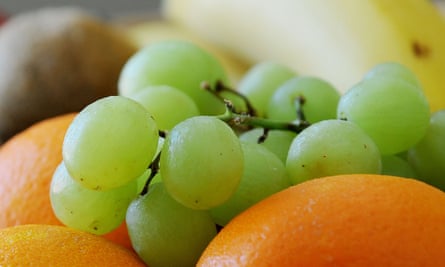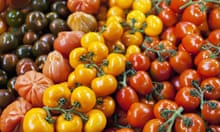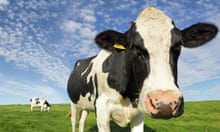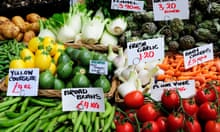Supermarket inflation doubled last month as shoppers had to pay more for staples such as butter and tea, underlining expectations that household budgets will come under extra pressure in 2017.
Grocery inflation jumped to a near three-year high of 1.4% in the 12 weeks to 26 February, from 0.7% in the 12 weeks to 29 January, according to the consumer consultancy Kantar Worldpanel. The cost of fruit and vegetables – a large proportion of which are imported – also rose.
Butter prices rose 15.8% over the period, fish prices rose 8.8%, and tea prices were up 6%.
The jump in food inflation shows the pace at which the sharp drop in the value of the pound since the Brexit vote in June is now feeding into consumer prices. A weaker pound makes goods imported from overseas more expensive.
The rise in food prices ends a run of falling costs that began in September 2014 as supermarket competition in the sector intensified and companies stepped up price wars.
Fraser McKevitt, head of retail and consumer insight at Kantar Worldpanel, said that supermarkets including Tesco, Sainsbury’s, Asda and Morrisons – the so-called big four – were now benefiting from rising prices.
“While consumers may be starting to feel a very slight pinch, increased inflation has led to overall market growth. Simultaneously, combined sales at the UK’s four largest supermarkets increased by 0.5% year on year.”
It comes as the OECD warned on Tuesday that rising inflation would hit households in Britain this year, making them less willing to spend money, and holding back economic growth. The Paris-based thinktank expects UK growth to slow in 2017 to 1.6% from 1.8% in 2016.

As families grapple with rising prices, wage growth is expected to remain weak, further stretching weekly budgets. The headline rate of inflation measured by the Office for National Statistics is expected to rise to about 3% from a current rate of 1.8% as firms continue to pass on the rising costs of their own raw materials and goods.
Kantar pointed out that not all grocery prices rose – there were falls in a number of items, including crisps, bacon and eggs.
The Kantar figures are not the official inflation figures but are based on 75,000 identical products compared year on year in the proportions purchased by shoppers.
Overall grocery sales increased by 2.3% in the latest 12-week period, compared with a year earlier. It was the highest rate since June 2014.
McKevitt said premium meal deals were popular with supermarket customers over the period. “British diners spent £9m more on premium meal deals than during the same period last year, suggesting that celebrating special occasions at home is an increasingly appealing option,” he said.









Comments (…)
Sign in or create your Guardian account to join the discussion